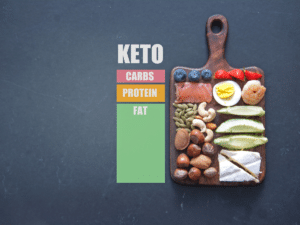Unveiling the Grains and Parkinsons Puzzle with Hopeful Eyes: Parkinson’s disease, a neurodegenerative disorder that primarily affects movement, has gained significant attention in recent years due to its rising prevalence and debilitating effects. While the exact cause of Parkinson’s disease remains elusive, mounting evidence suggests that dietary factors, particularly grain consumption, may play a crucial role in its development.

Delve into the potential connection between the consumption of grains and the risk of Parkinson’s disease. Explore the latest research and dietary recommendations to make informed choices for your health.
Parkinson’s Disease and Dietary Factors
Tremors, rigidity, slowness of movement, and balance difficulties characterise Parkinson’s disease. It stems from the progressive loss of dopamine-producing neurons in the substantia nigra, a brain region responsible for coordinating movement. While genetic predisposition plays a role, environmental factors, including diet, are believed to influence disease risk and progression significantly.
A study published in the journal Movement Disorders found that a high-grain diet was associated with an increased risk of Parkinson’s disease mortality. The study’s authors suggested that the inflammatory effects of grains may contribute to this association.
Consumption of Grains and Parkinson’s Risk
Several studies have explored the potential association between grain consumption and Parkinson’s disease risk. A meta-analysis of 11 prospective cohort studies involving over 1.2 million participants found a positive association between high grain intake and an increased risk of Parkinson’s disease. For every 50 grams of daily grain consumption, the risk of Parkinson’s disease increased by 7%.
The underlying mechanisms for this association still need to be fully elucidated, but several potential explanations have been proposed. One possibility is that grains, particularly refined grains, may contribute to systemic inflammation, a hallmark of Parkinson’s disease.
Nutrition and Parkinson’s Disease Development
The onset and course of Parkinson’s disease are significantly influenced by nutrition. In addition to providing vital nutrients that support general health, a balanced diet full of fruits, vegetables, and whole grains may lower the risk of Parkinson’s disease. On the other hand, consuming too many grains—especially refined grains—may make Parkinson’s disease more likely.
Refined grains undergo processing that removes the bran and germ, leaving behind the starchy endosperm. This process causes grains to lose vital nutrients and raises their glycemic index, which causes sharp spikes in blood sugar. Chronic elevations in blood sugar have been linked to increased oxidative stress and inflammation, both of which are implicated in Parkinson’s disease pathogenesis.
Ketogenic Diet as a Potential Therapeutic Approach for Parkinson’s Disease

The ketogenic diet, a high-fat, low-carbohydrate diet, has emerged as a promising therapeutic approach for Parkinson’s disease. By shifting the body’s primary energy source from glucose to ketones, the ketogenic diet may offer several benefits for individuals with Parkinson’s disease. Grains and Parkinsons
Research suggests that the ketogenic diet can improve motor function, reduce tremors, and alleviate cognitive symptoms. Moreover, it may have neuroprotective effects, potentially slowing disease progression. Grains and Parkinsons.
While further research is warranted to fully elucidate the mechanisms and implications of the ketogenic diet for Parkinson’s disease, its potential benefits make it a promising therapeutic option.
Conclusion Grains and Parkinsons
Parkinson’s disease is a complex neurodegenerative disorder with a multifaceted aetiology. While the exact causes remain elusive, research suggests that dietary factors, particularly grain consumption, may play a role in its development. A high-grain diet, especially one rich in refined grains, has been associated with an increased risk of Parkinson’s disease. Grains and Parkinsons
While further research is warranted to fully elucidate the mechanisms and implications of grain consumption on Parkinson’s disease risk, such dietary modifications may offer a protective strategy against this neurodegenerative disorder.
Ketology Reminder:
To the person with Parkinson’s: You are braver than you believe, stronger than you seem, and smarter than you think. (Winnie the Pooh)
To the families of those with Parkinson’s: Your love and support are the strongest medicine. Be patient, understanding, and offer a listening ear.




